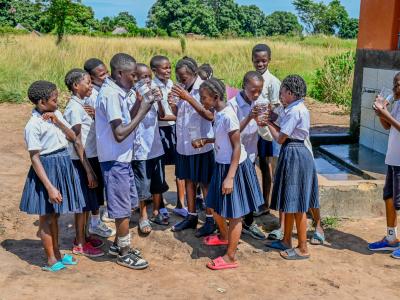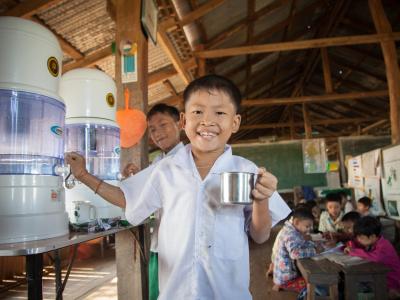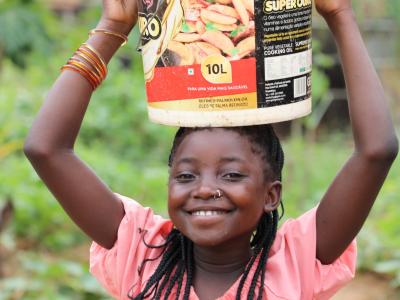publication / May 6, 2025
Mid-Term Update: Country Strategy 2023–2027
World Vision Cambodia Updates Country Strategy (2023–2027)
article / May 2, 2025
Clean Water Brings New Life to Mundanya Community in North Western Zambia
For years, the residents of Mundanya Village in Manyinga District faced a harsh reality—children and families risking their lives fetching unsafe water from the crocodile-infested Kabompo River. Safe drinking water was a distant dream, and poor sanitation hindered their health and well-being.
article / April 22, 2025
DR Congo: How Clean Water and Small Cups Transformed Student Hygiene in Lualaba
This article is a powerful story highlighting how a modest intervention, a personal plastic cup, greatly improved hygiene, hydration, and learning conditions in four schools in the Lualaba province of the Democratic Republic of Congo. It recounts the longstanding lack of potable water at Amani Primary School in Mutshatsha and the transformative impact of a borehole installed in 2022, which gave over 1,600 students access to clean water. However, without drinking containers, students were still unable to hydrate safely and effectively. In early 2025, a donation of 3,625 plastic cups across four schools allowed students to drink water hygienically and comfortably. This simple addition significantly reduced water waste, improved hygiene, and helped students stay focused in class. The initiative, part of World Vision’s Gifts-In-Kind (GIK) program, illustrates the profound impact of addressing overlooked details in development work.
publication / April 30, 2025
World Vision Cambodia Country Capacity Factsheet
Country Capacity Factsheet
article / May 2, 2025
Ending Menstrual Stigma: Boys Taking the Lead in Menstrual Hygiene Management in Zambia
Menstrual hygiene remains a significant challenge for many girls and young women in Zambia and across many parts of the world. Limited access to affordable, hygienic menstrual products often leads to feelings of embarrassment, stigma, and even school absenteeism during periods. In some communities, cultural taboos and misinformation further compound the problem, making it difficult for girls to manage their menstruation with dignity and confidence. As a result, many girls miss out on crucial days of learning, affecting their education and overall well-being.
article / April 23, 2025
More Than Water: Borehole Transforms Aurora’s Health and Schooling
11-year-old Aurora's life changed after World Vision built a borehole near her home in the north of Mozambique, eliminating her daily hour-long walk for unsafe water. This improved her school attendance and the community's access to clean water for better health and farming. Serving 400 people, this project is part of a larger WASH program that has positively impacted over 14,700 individuals in the region.
publication / April 17, 2025
WASH Annual Review: 2024
This report covers the fourth year of our Global WASH Business Plan (fiscal years 2021-2025).
publication / April 24, 2025
World Vision Afghanistan: Country Profile FY24
World Vision Afghanistan works in 34 districts and over 3,200 villages across Herat, Badghis, Ghor, Faryab, and Nangahar provinces, reaching more than 1.2 million people in FY24, including over 547,000 children.








